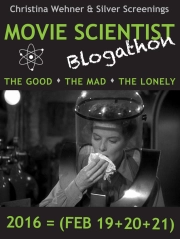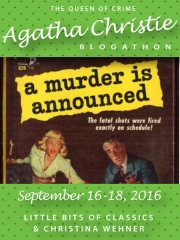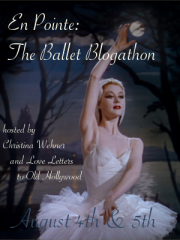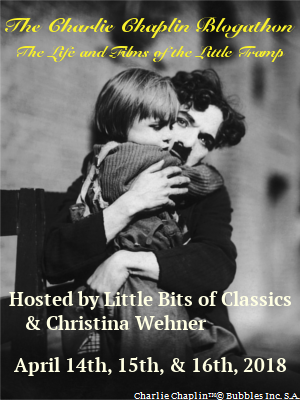 The Seventh Veil is an excellent British psychological melodrama with a dreadful ending. Not quite on par with the ending of Suspicion, but pretty bad nonetheless. Though The Seventh Veil is actually in the top ten highest grossing films of all time in Britain (adjusting for inflation), so perhaps I am in the minority. Or perhaps the ending is simply overlooked for the sake of a fascinating film, and it is a very fascinating film.
The Seventh Veil is an excellent British psychological melodrama with a dreadful ending. Not quite on par with the ending of Suspicion, but pretty bad nonetheless. Though The Seventh Veil is actually in the top ten highest grossing films of all time in Britain (adjusting for inflation), so perhaps I am in the minority. Or perhaps the ending is simply overlooked for the sake of a fascinating film, and it is a very fascinating film.
The film begins with psychologist Dr. Larsen (Herbert Lom) treating a concert pianist, Francesca (Ann Todd), who is suicidal and has a fixation about her hands, convinced that she can no longer play the piano.
Dr. Larsen’s contention is that psychology is like surgery, you must unclothe the mind in order to operate. He says the mind has seven veils – like the notorious “Dance of the Seven Veils” in the opera Salome (though I’ve read that some sopranos like to do the dance of the eight or nine veils, just so they can leave a veil or two on). Employing narcosis, he induces Francesca to tell him about her past, which the movie reveals in a series of flashbacks.
As an orphan of fourteen, Francesca was sent to live with her distant cousin Nicholas (James Mason), a brooding, wealthy, sophisticated and rather sinister woman-hater with a limp who has little use for a child in his house (but he likes cats!). However, when he discovers that she loves music and can play the piano, he sets out to transform her into a concert pianist, teaching her himself for hours a day. The film follows his oppressive hold over her and her many attempts to break free of his influence, all the while indeed becoming the great pianist that he dreamed she would be.
In some ways, it makes me think of Red Shoes. Francesca can’t live without her music any more than Vicky Page can live without ballet. And they both have a Svengali-like controlling influence hovering over them, who are necessary to their success.
James Mason as Nicholas is, of course, perfect. Nobody can brood better than Mason, or be suavely sinister and yet intense at the same time in the way he can. He absolutely dominates her life…almost living musically through her, like she’s possessed by him.
And Ann Todd’s cool reserve as an actress actually enhances this, because although we know she cannot live without the piano, she rarely seems to take much pleasure in it. Her oppressive fear of Nicholas and of injury to her hands (going back to a childhood caning that destroyed her chance of a music scholarship, later exacerbated by Nicholas’s constant focus on her hands) seems to sap all the transcendent joy of playing. She’s like a zombie at times.
The film is highly claustrophobic, echoing Francesca’s sense of being trapped in a small world of Nicholas and her music. And who knew a piano concert could be so tense? At her debut, where she plays Edvard Grieg’s piano concerto, her psychosomatic fear of her hands swelling makes one honestly wonder if she will make it through the concert.
Ann Todd also does an excellent job of “playing” the piano. Pianist Eileen Joyce taught Todd how to move her hands and arms and look convincing as a pianist and it is clear Todd must have worked very hard at it, though any close-ups of her hands at the piano were done by Joyce. But the film by no means shies away from showing Todd at the piano and the result is very convincing.
(Plot Spoilers) But that ending! The film has its share of a melodrama’s improbabilities (the psychological angle makes for great cinema, but is hardly realistic, and Ann Todd is not even remotely convincing as a fourteen year old child in the beginning), but I confess that it is the ending that irked me. Though there are two other men who Francesca loves at different times in the story, by the end she is rescued from her suicidal thoughts by Dr. Larsen and realizes that her true love is…Nicholas! Abusive, controlling Nicholas.
It’s the inverse of Red Shoes. Instead of killing herself because she cannot have both love and her piano, she sidesteps that issue by centering both her love and music on Nicholas. But I have a hard time believing that she could love him. She spends the entire film clearly resenting and fearing his control, unless we are to mistrust her flashback memories (which would ironically give the lie to Dr. Larsen’s idea that he can strip away all the veils). It seems inconsistent, and Nicholas far too sinister, for it to be a satisfactory resolution to the story. It would be like Trilby marrying Svengali and the author expecting his readers to rejoice. Or perhaps we are supposed to be made uneasy by the end?
But apart from the ending, it is a compelling movie that is well worth watching, especially for those who like James Mason or British cinema. The film fits squarely in that time period when Hollywood was also obsessed with psychology. The Seventh Veil was even released before Alfred Hitchcock released Spellbound. It’s well-acted (Herbert Lom is also excellent as the kindly Svengali-like psychologist), very much of its time, and has great music. It is also currently available on youtube.









Vienna
April 10, 2017 at 11:38 am
Great review. Must watch it again. I agree with you re the ending.
LikeLiked by 1 person
christinawehner
April 10, 2017 at 11:40 am
Yes, isn’t that ending frustrating! I think it’s all the more frustrating for how good the rest of the film is. 🙂
LikeLike
Erin
April 10, 2017 at 2:53 pm
I haven’t seen this, but the ending certainly does sound odd, and the parallels to The Red Shoes are very interesting too. It’s actually on TCM’s schedule tonight (as you might already know), so I’ll probably record it and check it out at some point. Thanks for writing about it! (As for Suspicion, I’ve never been willing to take the ending at face value because it’s just too unbelievable.)
LikeLiked by 1 person
christinawehner
April 10, 2017 at 3:06 pm
Oh wow, I actually had no idea it was on tonight! That worked out unintentionally really well. 🙂
I so agree about the ending of Suspicion. This ending is pretty goofy, too, alas. One wonders very much what caused it – if it was studio interference or the original intention all along. But the rest of the film is fascinating!
LikeLiked by 1 person
Erin
April 10, 2017 at 3:16 pm
What a strange coincidence! And yes, the rest of Suspicion is fascinating. The Wikipedia article on the movie (which may or may not be entirely accurate, being Wikipedia) talks about the ending and how it differed from the original novel, though apparently there’s some question about whether or not Hitchcock was forced to change it.
LikeLiked by 1 person
christinawehner
April 10, 2017 at 3:20 pm
How curious! I would like to think that Hitchcock did not intend that ending – it seems so unlike him to err so badly – but perhaps even geniuses can make mistakes. 🙂 I wonder what happened with Seventh Veil, too….if it was always supposed to be that way or if that ending is also the product of studios wanting a happy ending for their leads. It’s funny how these things happen.
LikeLiked by 1 person
ysabeaublue
June 13, 2017 at 2:58 pm
Re Suspicion: Hitchcock later claimed he didn’t intend that ending and was originally going to be more faithful to the book, but the studio decided they couldn’t have Cary Grant be a murderer and so the changes were made (though there is dispute as to whether Hithcock’s claim was really the case). This kind of reminds of I am Legend with Will Smith. The movie had a different ending – and the film as a whole fits that original ending – but the studio changed its mind when test audiences didn’t react well to the “hero’s” finale (which is funny since I think most people broadly would now prefer the original ending to the one we have).
As for The Seventh Veil, I believe I read somewhere that the ending was also changed – I can’t remember if it was because of James Mason or someone else…
The funny thing is, unlike Suspicion, The Seventh Veil’s ending doesn’t bother me as much. I agree it does seem abrupt in one respect, but I am able to buy them together because I don’t read it as romantic – or it’s an unhealthy romance at best. Imo, you’re supposed to be uncomfortable with Francesca and Nicholas’s relationship (or at least modern audiences should be, this might have not been the case in the 1940s). I like how you compare the film and characters to The Red Shoes, but I think Nicholas had a centrality to Francesca’s life in a way that Boris didn’t have for Vicky. Maybe it’s because Vicky was already an adult when she became embroiled with Boris whereas Francesca was 14. I always felt Max and Peter were positioned in direct contrast to Nicholas for the entire film, and that neither achieved the sort of dominance in Francesca’s life that Julian did for Vicky. I agree that Francesca was bitter and resentful toward Nicholas, but he was also all she knew. The doctor didn’t really cure her in the sense of making her a truly independent person – he just helped her over her neurosis about the piano. Francesca was still emotionally dependent on Nicholas – he had to tell her to play before she could do so. The two of them are highly dysfunctional and the “romantic ending” was the next step in their dysfunction. I was disturbed by the end, but the truth is sometimes people stay in situations like that. Francesca never really showed she wanted to be free to the degree Vicky attempted (I would argue that had the car accident not happened, her and Max’s long-term prospects were still poor). I think your second feelings about the ending are more correct – we don’t have to rejoice, we should be uneasy. That’s part of why I like the film so much. It doesn’t go for the traditional romantic route or leave you feeling good about where the characters leave off.
LikeLiked by 1 person
christinawehner
June 14, 2017 at 11:02 am
Those are good points! That would make a lot of sense if the ending was changed. I wonder what the original was meant to be. But they seem – with the sweeping romantic music – to be striving for a romantic feel in the end, which struck me as odd and inconsistent. Unless it was meant ironically. But I agree; it is definitely possible to read it today as being a sad example of a dysfunctional relationship. I wonder if people viewed it that way when it came out or if that is our more modern perspective.
LikeLike
Le
April 11, 2017 at 1:17 pm
I was surprised by the atmosphere of this movie, but also felt betrayed by the ending. I also fel thatthose early attempts of using psychoanalysis in film, like in Spellbound, are either too professoral or simply odd. But James Mason was great in this film – and I liked his cats!
Kisses!
Le
LikeLiked by 1 person
christinawehner
April 11, 2017 at 1:21 pm
Yes…those cats were adorable!! I guess he can’t be all bad if he likes cats. 🙂 But yes, I agree about the feeling of betrayal…I like how you put that. It does feel like a betrayal of all that came before.
I know what you mean – psychology in those films were very…imaginative? They make it all seem so much more neat that it is in real life, too.
LikeLike
Silver Screenings
April 14, 2017 at 4:23 am
Thank you for including the spoiler – I’m serious! I’m keen to see this film, but I like knowing not to expect too much from the ending.
LikeLiked by 1 person
christinawehner
April 14, 2017 at 11:00 am
I’m glad it helps! I know what you mean – it was seriously deflating to be enjoying the film and then unexpectedly hit with that ending. Makes one seriously wonder why they thought that would be a good idea…
LikeLiked by 1 person
Mrs. Tooley
May 9, 2017 at 10:05 am
Pooh Pooh. What kind of ending would have made you happy? Remaining incurable, choosing one of the other two men, or worse, the feminist option, Nora walking out the door by herself? You complain about “improbability”, but I think what you really didn’t like was that the ending was probable. Choosing Nicholas wasn’t at all unrealistic; only if you didn’t understand the characters or the movie’s intent. It’s fiction. You can always go back to watching reality tv, if you think there wasn’t enough “truth” in Seventh Veil for you.
LikeLike
christinawehner
May 9, 2017 at 10:25 am
I actually am usually quite forgiving about the lack of reality in a film and feel that much can be accepted as long as the film is internally consistent with the world created within the film, but I felt that her choosing Nicholas was not well set up. They really do portray him as an oppressor and that she is afraid of him. I agree that there are indeed many instances of woman choosing to stay in abusive relationships, but to celebrate it as romantic seems a bit much to swallow.
LikeLike
maddylovesherclassicfilms
May 30, 2017 at 1:17 pm
I enjoyed this film, but I felt the same way about the ending. If we had some scenes giving us more hints about how Nicholas felt about her, then I could have accepted it. To me it felt like there were scenes that were cut before she makes her final choice.
LikeLiked by 1 person
christinawehner
May 30, 2017 at 2:48 pm
That would make a lot of sense if there were cut scenes. It does feel like we are missing some information, as you day…or maybe some suggestion that her account of him is flawed or incomplete, perhaps?
LikeLiked by 1 person
maddylovesherclassicfilms
May 31, 2017 at 3:58 am
Agreed. That is an interesting point. We only see Nicholas from her perspective and we don’t get much sense of what he feels. He is also only tyrannical when it comes to music related matters. Perhaps she (and us in the audience)just got him wrong? I would love to know if there were scenes that were filmed but cut. Maybe someday they’ll turn up somewhere.
LikeLiked by 1 person
christinawehner
May 31, 2017 at 9:52 am
That would be fascinating to see! And an interesting twist on the psychological angle of the film.
LikeLiked by 1 person
David Carr
August 22, 2019 at 4:08 pm
I like to believe maybe foolishly, I really do not know, that possibly on some level they were both in love with each other. They were unable to show it for myriad reasons and only a good psychiatrist could unlock the depths of psychosis. I approve of the ending only because Masons staunch performance is deserving of this character arc.
LikeLike